
This article discusses the differences between giving children encouragement and praising them.
- Subject:
- Social Science
- Material Type:
- Reading
- Date Added:
- 08/15/2016

This article discusses the differences between giving children encouragement and praising them.

In this article, two topics are reviewed: to reveal children's knowing in doing during literacy-related play; and to affirm the significance of play as a literacy opportunity for young children.
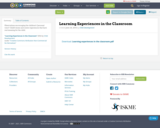
Observations encouraging the children's "personal voice": Child's home and center experiences that have real meaning for the child.

This article discusses the connection between children's nurturing behavior in nature, and putting it to practice in real-life.
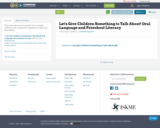
This article discusses the benefits of encouraging children to talk, and specific suggestions on how to get then talking.
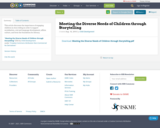
This article discusses the importance of engaging children in story telling in order to support socialization, oral and language development, affirm culture, and form the foundation for literacy.
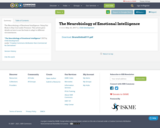
The Neurobiology of Emotional Intelligence: Using Our Brain to Stay Cool under Pressure.
This article gives details on how to use the brain to adapt to different circumstances.

The author explores the use of praise in the classroom and considers "reflective listening" as an alternative method for interacting with young children. The author discusses possible negative outcomes of praise and provides other options for helping a child feel good about himself/herself.

An overview of different types of traumatic experiences children may be exposed to and related symptoms.
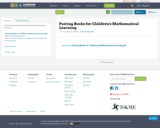
Pairing Books for Children's Mathematical Learning Resource

This article explores the importance of building positive relationships with the families of each child in your care.

This article gives an overview of how scientific investigation, exploration and inquiry can give children the ability to practice longer attention spans, set the stage for discovery, and nurture general respect for life.

An introduction to the Three Houses information gathering tool from the tool's creator Nicki Weld.
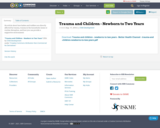
An article about how babies and toddlers are directly affected by trauma, trauma in the household, home or routine disruption, and how you can provide a supportive environment.
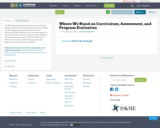
The National Association for the Education of Young Children (NAEYC) and the National Association of Early Childhood Specialists in State Departments of Education (NAECS/SDE) provide a brief description of where they stand on issues relating to early childhood curriculum and assessment. They list indicators of effective curriculum, assessment practices, and program evaluation and accountability.
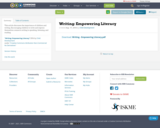
This article discusses the importance of children and writing. Encouraging children to write and express themselves connects writing to speaking, listening, and reading.
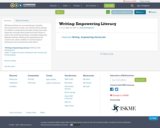
Writing activities are an essential part of quality literacy practices in early care and education settings. As children communicate through writing, they learn important concepts about books and other forms of print in the world around them, including writing and alphabet systems. Writing, like speaking and the creative arts, allows children to actively express themselves and communicate with others.